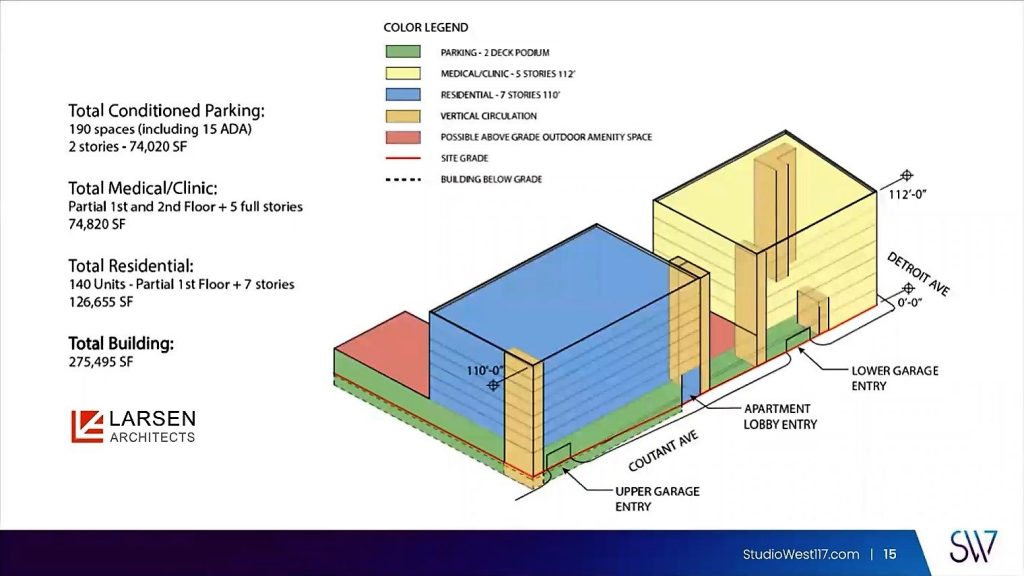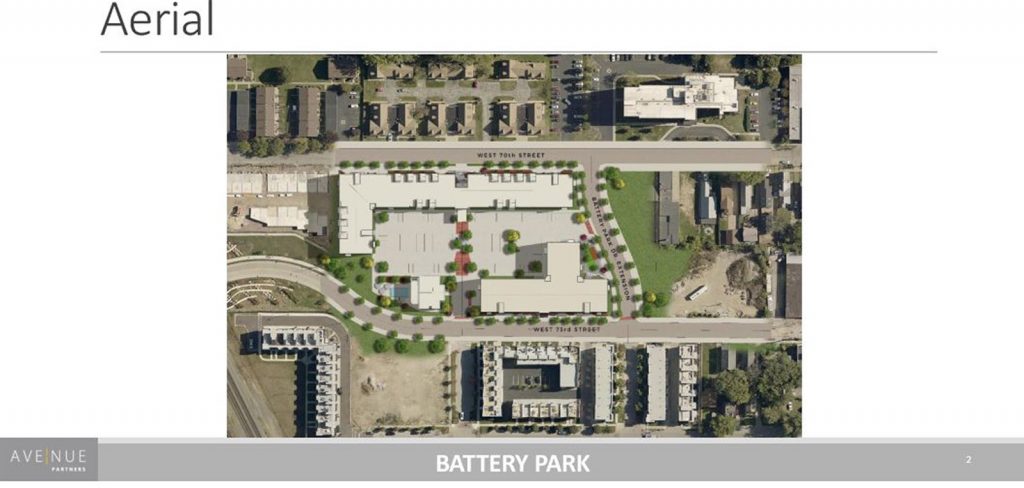 |
| Substantial changes were made today to legislation that would provide a source of capital financing to mega-developments in Ohio’s cities (State of Ohio). CLICK IMAGES TO ENLARGE |
A proposed Transformational Mixed-Use Development (TMUD) tax credit pending before the state legislature was substantially amended today during a hearing of the Ohio House of Representatives’ Workforce & Economic Development Committee.
Six changes were accepted by the committee that further refined the proposed law, Substitute Senate Bill 39. Most of the changes would link the release of tax credit awards more closely to the amount of state and local taxes generated by the credit.
The amendments were submitted by the bill’s original sponsor, State Sen. Kirk Schuring (R-29, Canton), said Josh Ferdelman, legislative aide to State Rep. Paul Zeltwanger, chair of Workforce & Economic Development Committee.
“We are not closed off to amendments by any means,” Ferdelman said. “We (the committee) won?t meet next week, but we will take this up again in January.”
The tax credit would refund to insurance companies up to 10 percent of their investment in TMUDs, as defined by the bill. Those include projects whose new or to-be-renovated connected buildings are at least 15 stories tall, measure at least 350,000 square feet and contain any combination of?retail, office, residential, recreation, structured parking or similar uses.
“Substitute Senate Bill 39 is designed to provide a unique tax credit that will foster mega-development projects that will transform Ohio’s downtowns with new and robust economic development,” said Schuring in testimony to the committee in October.
| Stark Enterprises, which is seeking to develop nuCLEus in downtown Cleveland, initiated the original version and consideration of the TMUD tax credit legislation (Stark). |
New provisions in the TMUD bill would limit the director of the Ohio Development Services Agency (DSA), which would administer the tax credit, to approving only four TMUD tax credits per fiscal year. If fewer than four TMUD applications were made or approved, the unused credits would carry over to the next year.
If more than four applications are submitted, they would be ranked by their economic value and transformational impact. The proposed change would give consideration to the new state and local taxes generated from the project and its surrounding area.
A project that has the most significant transformational impact and has a pro forma (or forward-looking financial statement) that shows the most expeditious schedule for the new state and local taxes to exceed the amount of the tax credit, will be the one that is approved.
After the TMUD credit is approved by the DSA director, the project must go into construction no later than one year after its approval. If it does not, the approved tax credit will be rescinded, according to the amended bill.
The revised bill also won’t release the 10 percent tax credit to recipients all at once. Instead,?the first 5 percent credit will be issued upon the completion of construction. The remaining 5 percent will be issued as evidence is submitted showing the new state and local taxes that were caused by the project and its surrounding area, according to Schuring.
If the evidence shows that, after the construction of the project was completed, it already generated new state and local taxes that exceeded the amount of the 10 percent credit, then a certificate for the full 10 percent will be issued.
But if the new taxes do not exceed the amount of the tax credit immediately after the completion of the construction, then the remaining 5 percent will be issued incrementally on an annual basis as evidence is shown that the new state and local taxes generated from the project and its surrounding area exceeds the amount of the additional credit. The incremental increases in the credit will be for a period of up to 5 years.
Lastly, the accepted amendments would increase the existing?historic renovation tax credit percentage from 25 to 35 percent for projects in rural areas. And the bill would enhance a variety of?Chapter 119 rules stipulating how DSA will administer the TMUD program.
The TMUD legislation had seemingly been on a fast track toward passage this fall as numerous business and civic groups testified in support of the bill. They included the Ohio Municipal League, Ohio Mayors Alliance, Ohio Chamber of Commerce, City of Hamilton, Ohio Insurance Institute, NAIOP of Ohio (Commercial Real Estate Development Association) as well as The Millennia Companies and Stark Enterprises.
The only group to testify in opposition to the bill was Policy Matters Ohio, a left-leaning non-profit policy research institute with offices in Cleveland and Columbus.
Stark’s law firm, Thompson Hine LLP, originally drafted the TMUD legislation nearly two years ago at the request of Stark. It did so after Stark had attempted other methods of loosening up public-sector capital funding for its mixed-use nuCLEus development project in downtown Cleveland.
Stark and other real estate developers note that major developments in Ohio’s larger downtowns cost nearly as much to build as those in larger cities like New York and Chicago but command rents that are one-half to two-thirds less.
Until today, the committee hadn’t held hearings on Sub. SB 39 since early November. Today’s hearing on the TMUD legislation was the committee’s fifth. The bill passed the Ohio Senate 32-1 on June 25. An older version of the bill passed the Ohio House last year 91-0 but the legislative session expired before the Senate could act on that version.
The current legislative session expires Dec. 31, 2020.
END











Great article Ken!
What timeline do you think it will take before this becomes LAW?
And do you think it will actually HELP both nuCLEus and Centennial projects be completed and again whats the timeline of when these projects be approved for the tax credit?
Unknown. Impossible to predict the future, let alone a political outcome.
Ive pretty much gave up on NuCLEus CityBlock and Sherwin Williams as well as city club apartments is what I've been focused on
What do we as non-participants have to give up? We never invested anything. I hope we don't invest emotions over something with which have zero control. Just watch and see what happens next. Then move on to the next one.